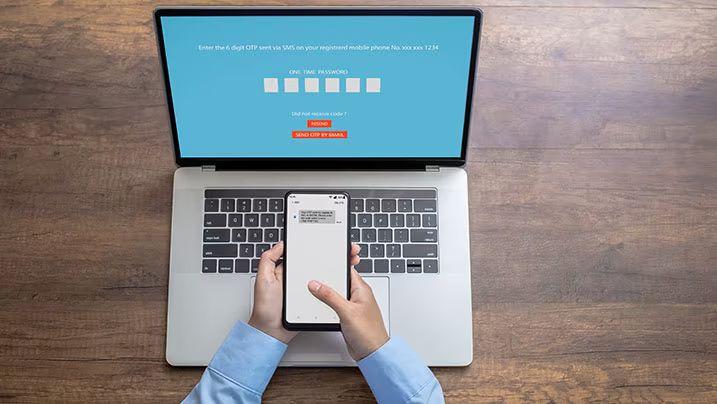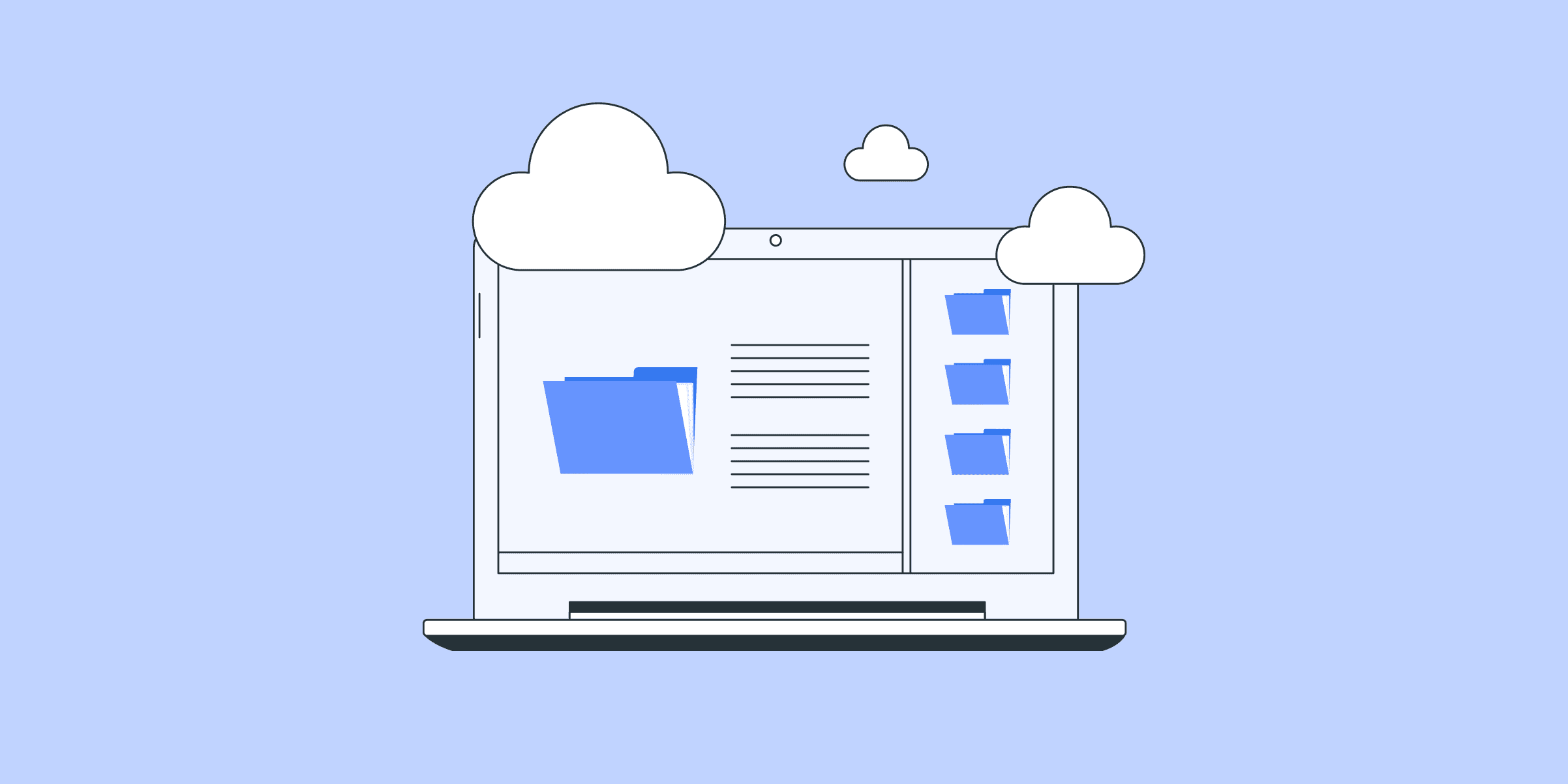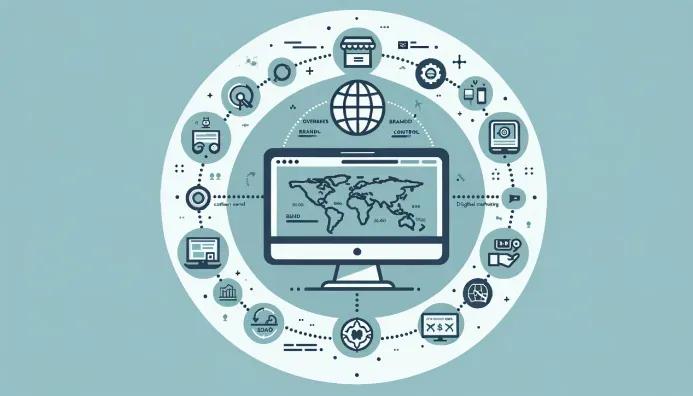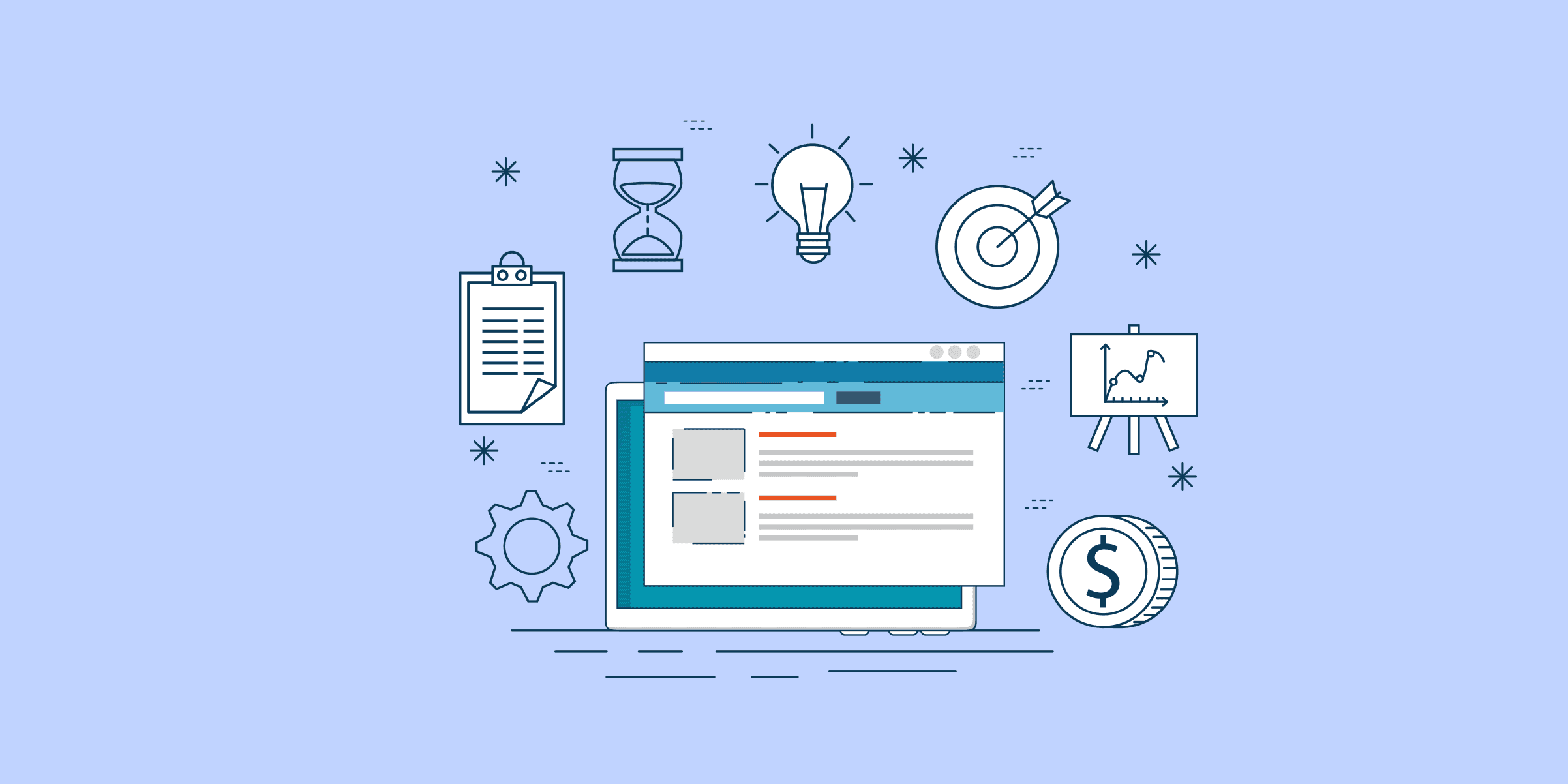
What are the dangers of using unreliable IP proxy services?
In today's digital age, the value of network data is increasingly valued, and many enterprises and individuals need reliable IP proxy services to achieve network access, data collection and network security protection on a global scale. However, with the wide application of IP proxy service, some unreliable service providers also began to emerge, which brought a series of security and performance problems to users. This article will reveal the hazards and risks of using unreliable IP proxy services. First, The IP address is blocked Using unreliable IP proxy services can result in IP addresses being blocked from websites. Many websites block frequently visited IP addresses to prevent malicious crawlers and abuse. If the IP address of the proxy service provider is blocked, users cannot access the target website, which affects services. Second, low speed and unstable connection Unreliable IP proxy services often provide slow and unstable connections. This means that users may experience connection timeouts and high latency, affecting page loading and data collection efficiency. In cross-border e-commerce and overseas marketing, connection speed is crucial because users are increasingly demanding web page response speed. Third, privacy and data breach risk Unreliable IP proxy services may present privacy and data breach risks. Some untrusted service providers may steal sensitive user data, such as browsing history, account information, and use it for commercial purposes. This is a huge security threat for both individual users and enterprises. Fourth, poor service quality Unreliable IP proxy services often provide poor service quality. They may lack technical support and customer service to address user issues and feedback in a timely manner. This will bring a lot of inconvenience and trouble to enterprises and individuals who rely on IP proxy services. Fifth, Risks of violation of laws and non-compliance Some unreliable IP proxy services may involve illegal and non-compliant behavior. They may provide illegal proxy services, such as circumventing geographic restrictions, breaching network blockades, etc. The use of these services may result in legal liabilities and risks for the user. Sixth, affect brand image and reputation If a company uses unreliable IP proxy services, it may affect its brand image and credibility. Users have increasingly high requirements for the quality of products and services, and the use of low-quality IP proxy services may lead to poor user experience, which will affect brand reputation. Seventh, financial losses Using unreliable IP proxy services can result in financial losses. When businesses buy substandard services, they can waste money and resources and affect the normal operation of the business. Eighth, harm to business: 1. Service interruption: The use of unreliable IP proxy services may cause service interruption. If the proxy IP address is frequently blocked or cannot be stably connected, key services of the enterprise may fail, affecting sales and services. 2. Reduce competitiveness: In cross-border e-commerce and overseas market expansion, stable foreign IP proxies are the key to maintain competitiveness. If you use unreliable agency services, it may not be possible to achieve global promotion and marketing, resulting in reduced competitiveness of the business. 3. Customer trust issues: The use of unreliable IP proxy services may affect customer trust. If users experience frequent connection problems when accessing corporate websites or shopping platforms, it may question the reliability and service quality of the company, thus affecting users' purchase decisions. 5. Limited marketing: Some advertising platforms and social media may target ads based on IP addresses. If you use unreliable IP proxy services, you may not be able to accurately conduct geographically targeted advertising, resulting in poor marketing campaigns. 6. Business delays and losses: The use of unreliable IP proxy services may lead to business delays and losses. Frequent connectivity issues and network failures can cause businesses to fail to respond to customer needs in a timely manner, missing out on business opportunities and causing potential financial losses. In summary, the use of unreliable IP proxy services may bring a range of hazards and risks, including IP blocking, slow and unstable connections, privacy and data breach risks, poor service quality, illegal and non-compliance risks, brand image and reputation impact, and financial losses. In order to ensure the security and stability of network access, users must choose a reliable IP proxy service provider and avoid using unreliable services. When choosing an IP proxy service provider, users should pay attention to its reliability, quality of service, privacy protection measures and compliance considerations to ensure their own interests and data security.

What are the Differences Between Web Scraping and Web Crawling?
With the development of the internet and the explosive growth of information, data collection and processing have become indispensable needs for businesses and individuals. In this context, web scraping and web crawling have become two common methods of data collection. Although these two methods may seem similar, there are significant differences in their approaches and objectives. This article will provide you with a detailed introduction to the definitions of web scraping and web crawling, explain their differences, and explore how overseas residential proxies can optimize these two data collection methods. I. Definition of Web ScrapingWeb scraping, also known as web data extraction or web crawling, is an automated method of data collection. It involves sending HTTP requests to target websites, retrieving specific data information, and extracting the data from web pages. The purpose of web scraping is to obtain specific data, such as news articles, product information, etc., and save this data to local files or databases. Web scraping is commonly used in the construction of search engines, news aggregation websites, price comparison websites, and other business fields. II. Definition of Web CrawlingWeb crawling, also known as web spider or web bot, is a process of automatically accessing web pages on the internet and collecting information. The objective of web crawling is to gather as much data as possible and extract useful information from it. Unlike web scraping, web crawling focuses more on comprehensive data collection rather than specific data. Web crawling is commonly used in data mining, market research, competitive intelligence, and other business fields. III. Differences Between Web Scraping and Web Crawling 1.Different Objectives: The main objective of web scraping is to obtain specific data information, while web crawling emphasizes collecting as much data as possible. 2.Different Scope: Web scraping usually targets specific web pages or websites, while web crawling traverses the entire internet to collect a large amount of information. 3.Different Frequencies: Web scraping has a relatively lower frequency, primarily aimed at acquiring target data, while web crawling has a higher frequency with the main goal of comprehensive data collection. 4.Different Data Processing: Web scraping focuses more on data extraction and storage, while web crawling emphasizes data processing, analysis, and mining. IV. Application of Overseas Residential Proxies in Web Scraping and Web Crawling Both web scraping and web crawling require frequent sending of HTTP requests to obtain data. However, a large number of requests can trigger anti-scraping mechanisms on target websites, leading to restrictions or bans on access. To address this issue, using overseas residential proxies has become an effective method to optimize data collection. Overseas residential proxies provide users with IP addresses from various locations globally, enabling IP address rotation and camouflage. By using overseas residential proxies, web scraping and web crawling can avoid being banned or restricted. The random switching and camouflage capabilities of proxy IP addresses make it difficult for target websites to identify web scraping behavior, ensuring stable data collection. Additionally, overseas residential proxies can geolocate IP addresses, simulating user visits from different regions to target websites. In web crawling, data from specific regions may have special value, and using overseas residential proxies can obtain more comprehensive data information globally, providing greater support for data mining and market research. In conclusion, although both web scraping and web crawling are methods of data collection, they have significant differences in their objectives, scope, frequency, and data processing. Web scraping is mainly used to obtain specific data, while web crawling focuses on comprehensive data collection. By leveraging overseas residential proxies, you can optimize the data collection process of web scraping and web crawling, avoid being banned or restricted, and obtain more comprehensive and accurate data information, enabling businesses and individuals to gain an advantage in a competitive market. We strongly recommend using overseas residential proxies when conducting web scraping and web crawling to ensure smooth data collection and data accuracy.

What are the disadvantages of using a shared proxy for Amazon operations?
In today's e-commerce world, Amazon has become one of the largest online retail platforms in the world, providing a vast sales channel for millions of merchants. However, operating on the Amazon platform comes with a number of challenges, one of which is how to manage and maintain a good network of proxies. Shared proxies are a widely used proxy technology, but there are some potential drawbacks to using shared proxies in Amazon operations. In this article, we will delve into the issues and challenges that Amazon operations may face when using shared proxies to help merchants better understand and make informed decisions. I. Basic Concepts of Shared proxies Shared proxy is a proxy technology where multiple users or clients share the same proxy server to access the Internet. This proxy server relays network requests from multiple users to share resources. Shared proxies are usually provided by third-party service providers, and users rent these proxies to hide their real IP addresses, bypass geographic restrictions, and so on. Second, the shared proxy operated by Amazon disadvantages Although shared proxies can provide convenience and efficiency in some cases, there are some potential problems and drawbacks associated with the use of shared proxies in Amazon operations: 1. IP Sharing Leads to Banning Risk: On the Amazon platform, frequent IP changes and sharing can lead to proxy IP being mistaken for malicious operations, which can subject accounts to bans or restrictions. Amazon monitors IP usage and if a proxy IP is used by more than one account, it may trigger a risk alert from Amazon. 2. Speed and stability issues: Shared proxies are often used by multiple users at the same time, which can lead to slow or unstable proxy servers. In Amazon operations, delayed and unstable proxies may affect order processing, product shelving, and other critical operations. 3. Not adapting to high-frequency operations: Amazon operations usually require frequent operations, such as product shelving, price adjustment, etc. Shared proxies may not be able to meet high-frequency operations. Shared proxy may not be able to meet the requirements of high-frequency operations, because multiple users share the same proxy IP, resulting in frequent access to the proxy IP in a short period of time. 4. Privacy issues: Using a shared proxy means that multiple users share the same proxy server, which may result in users' private information not being secure enough. Shared proxy providers may record users' access data and activities, resulting in the risk of privacy leakage. 5. 5. Difficult to customize: Shared proxies are usually provided by third parties, making it difficult for users to customize the proxy server. In some cases, users may need specific proxy settings to meet the requirements of Amazon's operations, but shared proxies may not be able to provide such personalization. III. Solutions and Considerations Although there are some potential drawbacks to using shared proxies for Amazon operations, there are still solutions and considerations merchants can take to mitigate these issues: 1. Choose a trusted proxy provider: If you decide to use shared proxies, be sure to choose a trusted proxy provider to avoid the risk of unstable proxy services or privacy breaches. 2. Use proxies appropriately: Merchants should use proxies appropriately to avoid frequent IP changes and high-frequency operations, thus reducing the risk of being banned by Amazon. 3. Consider Dedicated Proxies: Consider using dedicated proxies, i.e., proxies that are used by only one of your users. Although the cost is higher, it provides a more stable and secure proxy service. 4. Regular monitoring and testing: Regularly monitor the speed and stability of the proxy to ensure that the proxy server can meet the needs of Amazon's operations. Regularly test the performance of the proxy IP on the Amazon platform to ensure that it can operate normally. 5. Privacy protection: If privacy is a concern, you can choose a service where the proxy provider promises not to record user activities and data to protect personal privacy. Conclusion. While there are some conveniences to using shared proxies in Amazon operations, there are also some potential drawbacks and risks. Merchants should carefully weigh the pros and cons when deciding whether to use shared proxies and consider appropriate solutions and considerations to mitigate potential issues. Whether it's choosing a dedicated proxy, regularly monitoring proxy performance, or being mindful of privacy protections, merchants can better address the challenges that shared proxies can bring and ensure smooth operations on Amazon.

What are the factors that affect the speed of proxy operation?
In today's digital era, proxy servers are widely used in various scenarios such as network access, data collection, and privacy protection. However, the operation speed of proxy servers is crucial to user experience and operational efficiency. In this article, we will discuss the main factors that affect proxy operation speed and introduce how to optimize proxy servers to improve operation speed. First. Network Bandwidth and LatencyNetwork bandwidth refers to the data transmission capacity between the proxy server and the target server. Higher network bandwidth can provide faster data transmission speed, thus improving the operation speed of the proxy. At the same time, network latency is also one of the factors that affect the agent's operation speed. Lower latency can reduce the waiting time between request and response, so that the proxy server can respond to user requests faster. Second, proxy server performance and loadThe performance and load of a proxy server has a direct impact on its speed. Higher performance proxy servers are usually equipped with more powerful hardware and processing power to process user requests and provide responses faster. At the same time, the load on a proxy server also affects its speed. When the proxy server handles a large number of requests or the load is too high, it may cause the operation speed to drop. Third. Proxy protocols and encryption algorithmsDifferent proxy protocols and encryption algorithms have different effects on proxy operation speed. Some proxy protocols and encryption algorithms may introduce additional computation and processing burdens, thus reducing the running speed of the proxy. Therefore, when choosing proxy protocols and encryption algorithms, you need to consider the balance between security and performance, and choose the solution that suits your needs. Fourth, the geographical location and distance of the serverThe distance between the geographical location of the proxy server and the physical location of the user also affects the running speed of the proxy. Usually, a closer server can provide lower latency and faster data transmission speed. Therefore, choosing a proxy server that is geographically close to the user's location can improve the operation speed. Fifth. Network congestion and access restrictionsNetwork congestion and access restriction are common problems that affect the operation speed of proxy. When the network is congested, the data transmission speed may be limited, which affects the operation speed of the proxy. In addition, some websites and platforms may restrict access to the proxy server, limiting its bandwidth and connection speed, resulting in a decrease in proxy operation speed. Sixth, proxy settings and configurationProxy settings and configuration can also have an impact on its speed. Reasonable proxy settings and configuration can improve the efficiency and performance of the proxy. For example, optimizing the proxy cache settings, configuring the connection pool, using appropriate connection and timeout settings, etc. can improve the running speed of the proxy. To summarize:Factors that affect proxy operation speed include network bandwidth and latency, proxy server performance and load, proxy protocols and encryption algorithms, server geographic location and distance, network congestion and access restrictions, and proxy settings and configurations. By optimizing these factors, users can improve proxy operation speed and get better user experience and operational efficiency. When choosing a proxy service provider, these factors should also be considered to select a proxy service with excellent performance, stability and reliability to meet the needs of individuals and businesses.

What are the general reasons for showing that your residential proxy is not working?
Residential proxies play a vital role in modern Internet use, and they are used for a variety of purposes, ranging from online privacy protection to data collection to access across geographic locations. However, in practice, there are times when you may encounter a situation that shows that a residential proxy is not working. This can be caused by a number of factors, so let's take a look at the possible causes and how to deal with them. I. What are the general reasons for residential proxy not working? 1. IP Blocking: Some websites or online services monitor and block proxy IP, especially public proxy servers. This is to prevent abuse and fraud. If your residential proxy IP is blocked, you may not be able to access specific websites or services. 2. Network Problems: Sometimes, the Residential Proxy may be affected by network problems, such as unstable network connections, excessive latency, etc. The Residential Proxy may also be affected by network problems. This may result in the connection not being successfully established or web pages not loading properly. 3. Proxy server failure: Proxy servers may also fail, resulting in inability to function properly. This may be due to server maintenance, overload or other technical issues. 4. Geographic Restrictions: Certain websites or services may restrict access based on your geographic location. If your residential proxy IP is located in a restricted geographic location, you may be denied access. 5. Proxy Setup Problems: If you use a proxy that is not configured correctly, it may not work properly. For example, an incorrect proxy port or server address may cause the connection to fail. 6. Account Problems: For websites or services that require login, if you have problems with your account, it may affect your access. This may be related to a banned account, wrong password, etc. 7. Firewalls or security software: Sometimes firewalls or security software may block proxy connections as a potential risk. 8. IP Conflict: If multiple users are using the same residential proxy IP at the same time, this may cause an IP conflict and lead to connection problems. 9. Network Speed Limits: Some proxy providers may impose network speed limits, especially on free proxies. This may result in you not being able to get enough bandwidth to properly browse the web or use online services. II. How to solve the problem of residential proxy unavailability? To cope with the problem of showing the residential proxy not working, you can try the following methods: 1. Check the configuration: Make sure your proxy settings are correct, including proxy type, port and server address. 2. Use a reliable proxy provider: Choose a trusted proxy provider to ensure stable connectivity and availability. 3. Adjust network settings: If your network connection is unstable, consider checking and resolving network issues. III. How can I minimize the problem of residential proxy unavailability? Reducing residential IP unavailability issues is critical to a stable network connection. Here are some ways to help you minimize these problems: 1. Choose a reliable proxy provider: Choose an experienced and reputable proxy provider. They usually provide stable residential IP and have a professional technical support team that can resolve issues in a timely manner. 2. Multiple proxy IP alternatives: If one proxy IP has problems, you can prepare multiple alternative IP in advance so that you can switch when needed. This ensures that you will not be unable to continue working because of a single IP problem. 3. Regular IP changes: Even if your residential IP is fine, it is recommended to change the IP regularly, as this will help avoid the IP being recognized as a proxy by websites, thus improving connectivity. 4. Regular proxy server maintenance: If you have your own proxy server, ensure that it is working properly by performing regular maintenance and optimization. This will minimize connectivity problems caused by server issues. 5. Avoid abuse: Don't change your IP address too often in a short period of time or make large-scale access requests, which may be seen as abusive behavior by some websites. 6. Check your internet connection: Make sure your internet connection is stable. If your network connection has problems, the use of proxy IP will also be affected. 7. Reasonable proxy intervals: Do not switch proxy IP too often, but set reasonable switching intervals according to the need to avoid being recognized by websites as abnormal access. 8. Use high-quality proxy IP: Choose high-quality residential proxy IP, which usually have lower blocking risks and better connectivity. 9. Use proxy pools: Proxy pools help you manage multiple proxy IP and switch between them as needed to ensure connectivity. 10. Maintain account status: If you need to log in to your account, make sure it is in good condition and not blocked or locked. 11. Avoid Frequent Connections and Disconnections: Avoid connecting and disconnecting from the proxy IP frequently within a short period of time, as this may be considered abnormal behavior. In conclusion, by choosing a reliable proxy provider, maintaining your proxy server regularly, following website rules and setting reasonable proxy intervals, you can minimize the problem of unavailability of your residential IP and ensure stable network connection and connectivity.

What are the levels of anonymity for proxies? Why is anonymity important?
In the age of the Internet, proxies play an important role in many areas. Both individual users and businesses may need to use proxies to protect their privacy and data security. Anonymity level is an important consideration when choosing a proxy service. In this article, we will introduce the anonymity level of proxies and explain why anonymity is important when using proxies. I. Anonymity Levels of Proxies The anonymity levels of proxies are usually categorized into three types: transparent proxies, anonymous proxies, and high anonymity proxies. They differ in hiding the client's real IP address and other identity information. 1. Transparent proxies:Transparent proxies, also known as normal proxies, are characterized by not modifying the requested information during transmission. Using a transparent proxy, the target website can obtain the client's real IP address and other relevant information. This means that transparent proxies provide less anonymity and the real identity and location of the client is easily recognized. 2. Anonymous Proxy:The anonymous proxy hides the client's real IP address when transmitting the request, but still passes some other information such as HTTP headers. Although the target website cannot directly recognize the real IP address of the client, it can still detect the use of a proxy. Therefore, anonymizing proxies provide a higher level of anonymity than transparent proxies, but there are still some risks. 3. High-anonymity proxies:A high stash proxy, also known as a deep anonymizing proxy, completely hides the client's real IP address and other identity information when transmitting requests. With a high-anonymity proxy, the target website cannot recognize that the client is using a proxy, thus providing the highest level of anonymity and privacy protection. II. The Importance of Anonymity Protecting personal privacy and data security is critical on the Internet. Anonymity is important when using proxies for several reasons: 1.Privacy Protection:On the Internet, a user's IP address and other identifying information is an important part of personal privacy. The use of an anonymous proxy or a high hiding proxy effectively hides the user's real IP address, thus protecting the user's privacy from unlawful intrusion. 2. Prevent tracking:Many websites and advertisers collect users' IP addresses and browsing habits to track users' activities and use them for ad targeting and user behavior analysis. Using an anonymous proxy prevents tracking and protects the user's personal information from being misused. 3. Bypass blocking and restrictions:Some regions or network environments may block or restrict access to specific IP addresses. Using an anonymous proxy or a high stash proxy can bypass these blocks and restrictions for a freer access experience. 4. Network Security:Anonymous proxies and high stash proxies can provide users with an additional layer of network security, and hiding the real IP address can reduce the risk of exposure to network attacks. 5.Competitive advantage:In business competition, companies may need to analyze and monitor competitors. Using a high anonymity proxy can help an organization hide its true identity from competitors and obtain more accurate competitive intelligence. III. How to check the anonymity of a proxy 1. Check the type of IP address:When using a proxy, first check your IP address type. Transparent proxies usually expose your real IP address directly, while anonymous proxies and high hiding proxies hide your real IP address. 2. Use an online proxy detection tool:There are many online tools that can help you detect the anonymity of a proxy. These tools will show you the IP address you are currently using and the anonymity level of the proxy. 3. Analyze HTTP headers:Looking at the HTTP headers of a proxy request can help you see if the proxy is leaking some critical information. Transparent proxies usually reveal the real IP address in the header information, while anonymous and high-anonymity proxies try to hide this information. 4. Use IP Location Service:Use IP location services to see the geographic location of the proxy server. If the location of the proxy server doesn't match your actual location, then this is a sign of an anonymous or high stash proxy. 5. Check the type of proxy server:Different types of proxy servers offer different levels of anonymity. Transparent proxies usually offer low anonymity, anonymous proxies offer medium level of anonymity, and high stash proxies offer the highest level of anonymity. 6. Test access to websites:Use a proxy to access some restricted websites and observe if you are able to access them successfully. If the proxy is recognized and restricted by the website, then it may have lower anonymity. Summarize: Anonymity is critical for proxy users. Different levels of anonymizing proxies offer different levels of privacy protection, and users should choose the right proxy service for their specific needs and usage scenarios. Both individual users and businesses can achieve a higher level of privacy protection and secure access experience on the Internet by using anonymous proxies or high stash proxies.
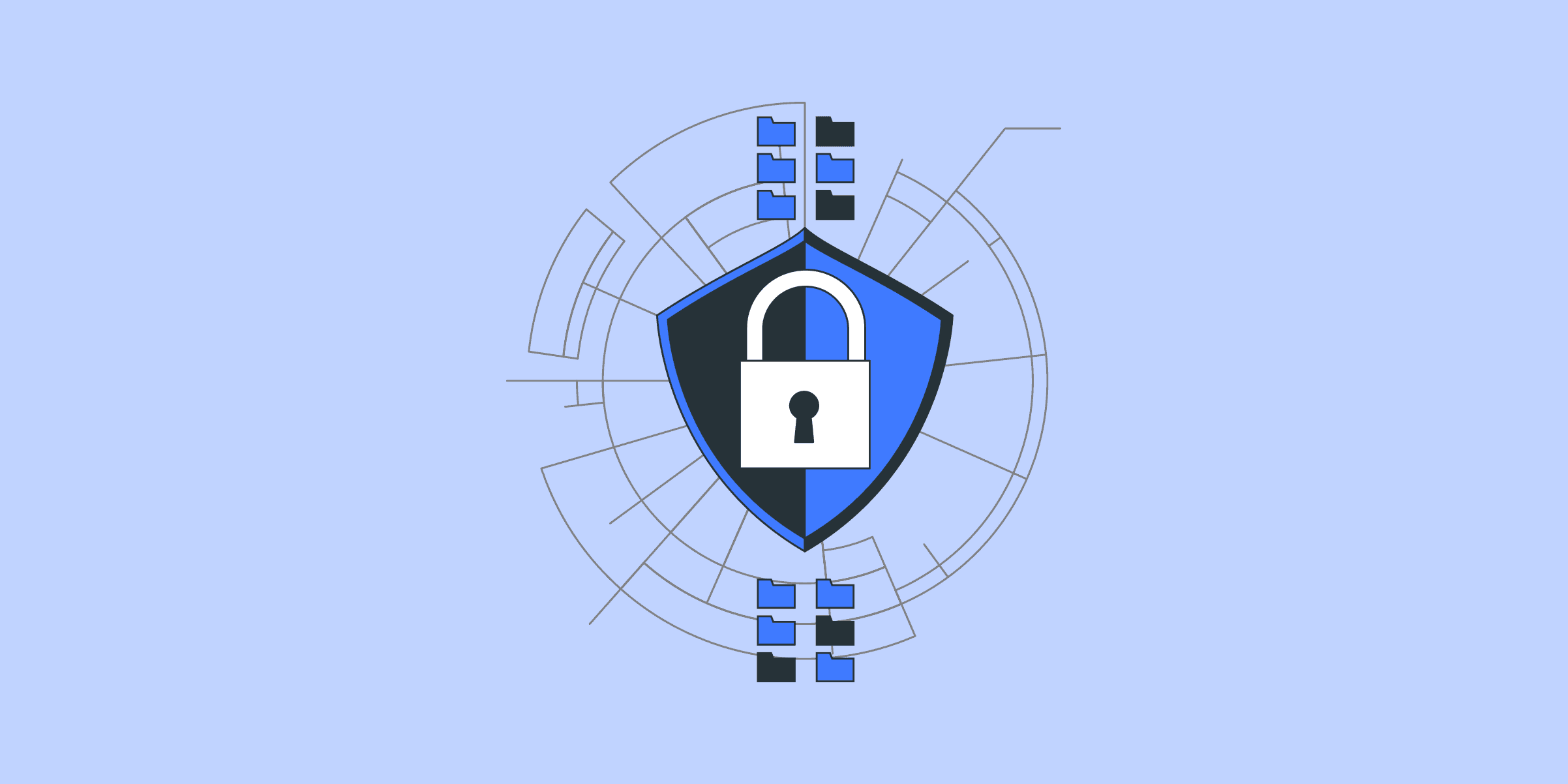
What are the usual disadvantages of free Socks5 proxy?
Socks5 proxy is a common proxy protocol that can help users hide their real IP address, access blocked websites, or improve network security. However, there are many free Socks5 proxies available, but are they worth using? This article will delve into some of the common drawbacks of free Socks5 proxies to help users understand why paid proxy services are more trustworthy. First, the common disadvantages of free Socks5 proxy Instability: Free Socks5 proxies are usually provided by unreliable individuals or organizations whose servers may not have sufficient resources and technical support, resulting in unstable proxy connections, frequent disconnections or high latency. Slow Internet Speed: The bandwidth of free Socks5 proxies is usually limited, and more users use them at the same time, resulting in slower Internet speed, which affects the normal Internet experience and access speed. Risk of data leakage: Since the quality of free Socks5 proxy is not guaranteed, there is a risk of data leakage. Some free proxies may record users' access logs and even sell these data to third parties, jeopardizing users' privacy and security. High blocking rate: Many free Socks5 proxies are often used for abusive purposes such as crawling, spamming, etc., resulting in an increased risk of being blocked by the target website. This can make it difficult for users to access some popular websites and services. Advertisement interference: Free Socks5 proxies usually gain revenue through advertisements, which can lead to cumbersome advertisement interference when users use the proxy, affecting their experience. Second, the impact of free Socks5 proxies on business Although the free Socks5 proxy is attractive, the impact on business may not be ideal, the following are some specific examples to illustrate: 1. Business damage due to network speed delays: Free Socks5 proxies are usually provided by unstable individuals with limited bandwidth and shared by a large number of users, resulting in network speed delays. For example, an e-commerce company uses a free proxy for competing price monitoring, but due to the proxy's slow network speed and delayed data acquisition, it misses the preferential time period, which affects its price adjustment strategy and results in business loss. 2. Unable to access the target website due to blocking: The IP of the free Socks5 proxy is usually frequently used for bad behaviors such as crawling, brushing votes and so on, which leads to it being blocked by the target website. For example, a social media marketing company used the free proxy for bulk registration of social accounts, but after the proxy IP was blocked, it could not access the social platform again, which affected the company's marketing plan. 3. Data Leakage Threat: Free Socks5 proxies are provided by unregulated individuals or organizations, where there is a risk of malicious proxies that may record user access data and use it for commercial purposes or other undesirable actions. For example, a financial institution used a free proxy to perform web crawling to collect financial data, but the data that was unknowingly recorded was used to manipulate the financial markets, leading to legal risks and reputational damage. 4. Advertisements and Pop-ups Interfere with User Experience: Free Socks5 proxies often generate revenue through advertisements, which leads to frequent and cumbersome advertisements and pop-ups that interfere with the user experience when using the proxy. For example, an online gaming company uses a free proxy for bulk registration of game accounts, but the proxy constantly pops up ads in the game interface, which affects user retention and satisfaction with the game. Third, how to choose a suitable paid Socks5 proxy service? When choosing a paid Socks5 proxy service, users should pay attention to the following key points: 1. Reputation and word-of-mouth: Choose a high-profile and reputable paid proxy service provider to avoid problems caused by untrustworthy service providers. 2. Server distribution: Ensure that the proxy server is widely distributed, covering multiple regions, in order to meet the network access needs of different regions. 3. Price and cost-effective: different paid proxy service providers offer different prices and service quality, users should consider the price and cost-effective. 4. Data privacy policy: Ensure that the proxy service provider has a strict data privacy policy, does not record the user's access logs, to protect the user's privacy and security. Despite the attractiveness of free Socks5 proxies, their common drawbacks make their use risky. In contrast, paid Socks5 proxy services are more stable, reliable and fast, protecting user data privacy and reducing the risk of blocking. When choosing a paid proxy service, users should consider factors such as the service provider's reputation, server distribution, price and data privacy policy in order to choose a proxy service that suits their needs. By choosing a trusted paid Socks5 proxy service provider, users can get a better proxy experience and improve network security and access efficiency.
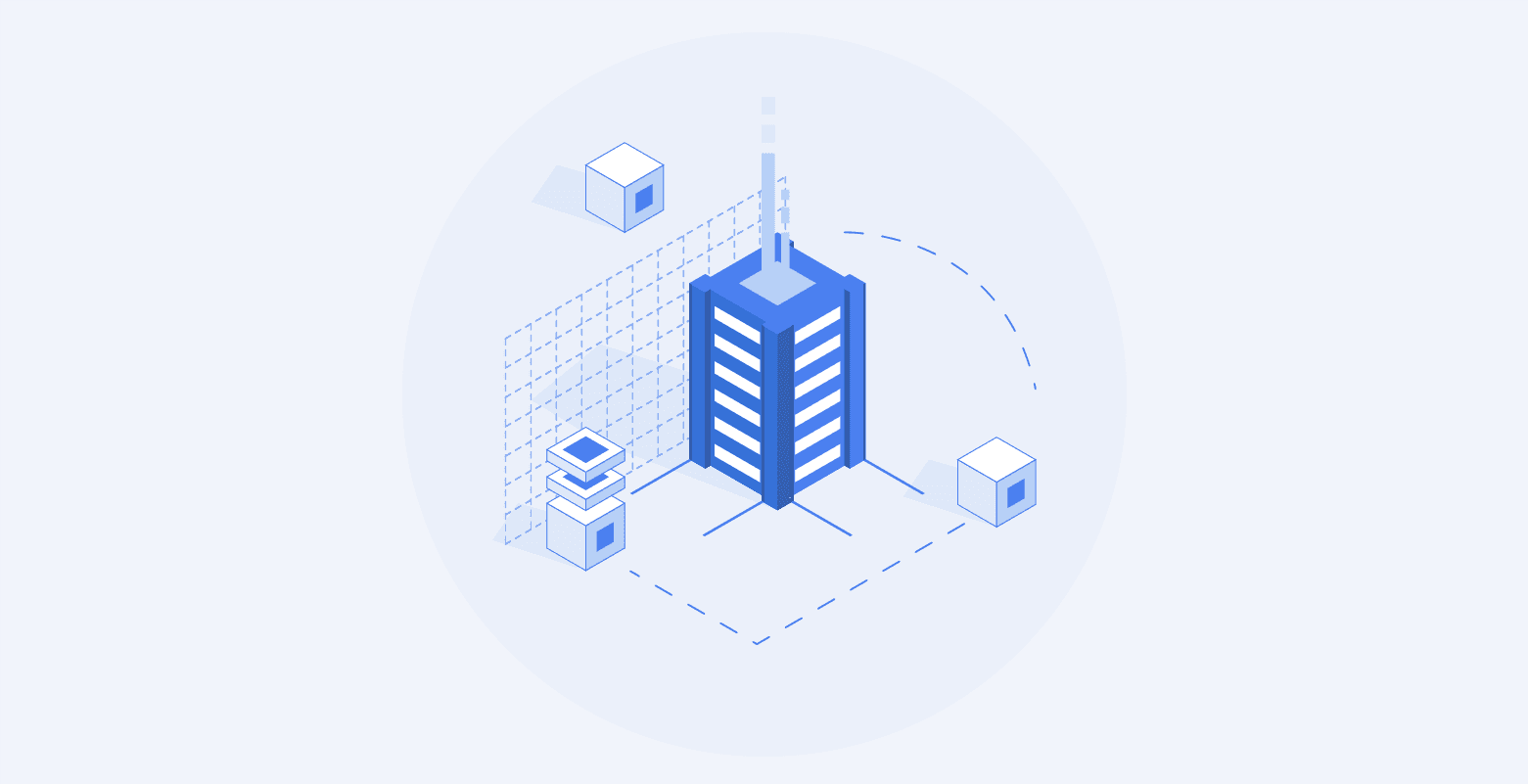
What are the WhatsApp marketing tips? Do I need to use a residential proxy?
WhatsApp, one of the world's most popular instant messengers, has become an important channel for cross-border e-commerce and business marketing. Through WhatsApp, businesses can communicate directly with potential and existing customers to provide personalized services and promotions. In this article, we will introduce some WhatsApp marketing tips and discuss whether residential proxies need to be used in the marketing process. I. Marketing Tips 1. Personalized Message Push: WhatsApp allows businesses to send personalized messages to customers, including greetings, reminders and offers. By understanding the interests and needs of their customers, businesses can customize the content of their messages to increase customer engagement and conversions. 2. Create WhatsApp Groups: Creating WhatsApp groups is an effective way of marketing. Enterprises can create different groups according to different products or services, attract interested customers to join, and introduce and promote their products in the groups. 3. Using WhatsApp Broadcast List: By creating a broadcast list, a business can send messages to all customers subscribed to the list for one-to-many mass mailing. In this way, the message can be conveyed better and the promotion effect can be improved. 4. Timed Messages: Timed Messages is a very useful feature that helps businesses send marketing messages at specific times to ensure that the messages arrive on time and maximize exposure. 5. Post offers and promotions: WhatsApp is an ideal platform to promote promotions. Businesses can post offers, discounts, specials, etc. to attract more potential customers. 6. Provide customer support: WhatsApp can be used not only for promotion but also for providing customer support. Businesses can use WhatsApp to answer customers' questions, solve their problems and increase customer satisfaction. II.Role of Residential proxies in WhatsApp Marketing: Although WhatsApp serves as a powerful marketing tool, there are a number of challenges that may be faced when marketing across borders, one of which is geographical restrictions. Since WhatsApp users are mainly located in various countries and regions, and there may be geographical segregation between users in different countries and regions, this makes cross-border marketing difficult. This is where Overseas Residential proxy plays an important role. By using an overseas residential proxy, you can switch the IP addresses of different countries and regions, breaking through geographical restrictions and realizing worldwide marketing. By using a proxy server, you can make WhatsApp think that your account is logged in from a specific country or region, so that your marketing messages can directly reach users in your target countries and regions. For cross-border e-commerce merchants and businesses, how to conduct effective WhatsApp marketing is an important topic. Residential proxies can play an important role in conducting WhatsApp marketing. a. Improve account security: Residential proxies can hide the real IP address, increase account security, and avoid being recognized by WhatsApp as abnormal behavior due to frequent logging in and using multiple accounts. b. Support multi-account management: Residential proxy can provide multiple IP addresses and support multi-account management. For cross-border e-commerce companies and enterprises, having multiple WhatsApp accounts allows them to better carry out marketing activities and reach more target customers. c. Solve geographical restrictions: WhatsApp may have geographical restrictions in different countries and regions, using residential proxies can switch IP addresses in different countries and regions, breaking through geographical restrictions and realizing global marketing. d. Personalized Push: The IP addresses provided by residential proxies come from real residential users, which enables more personalized push, increasing the credibility of the message and the audience's engagement. e. Stable and high-speed connection: Choosing a stable and high-speed residential proxy can ensure the smooth running of WhatsApp marketing and avoid failure or delay of message delivery due to proxy connection problems. To summarize, WhatsApp as a powerful marketing tool has a wealth of marketing techniques. For cross-border e-commerce companies and enterprises, residential proxies can play an important role in improving account security, supporting multi-account management, solving geographical restrictions, realizing personalized push, as well as ensuring stable and high-speed connections. By using Residential proxy wisely, enterprises can carry out WhatsApp marketing more flexibly and efficiently, and realize better marketing results and business growth.

What data is important when evaluating foreign proxies?
When conducting a foreign proxy evaluation, it is very important to understand and analyze the various data, which can help us assess the performance and reliability of the proxy, and choose the proxy service provider that best suits your needs. In this article, we will introduce the more important data indicators in the evaluation of foreign proxies to help you make a wise choice. First, why do we need to conduct proxy evaluation? Foreign proxy evaluation is to choose the most suitable for their needs of the proxy service provider, and to ensure the performance and reliability of the proxy. The importance of foreign proxy evaluation is mainly reflected in the following aspects: 1. Ensure the stability and speed of the proxy: The stability and speed of the foreign proxy is the basis of business operations. Through the evaluation, we can understand the proxy service provider's server response time, connection speed and download speed and other indicators to ensure that the proxy can provide a stable and efficient connection to avoid the business because of the proxy's problems. 2. Optimize business efficiency: Choosing a proxy service provider with excellent performance can help us optimize business efficiency. Fast and stable proxy connection can improve the efficiency of data collection, web crawling and other tasks, so that we can get the information we need faster, thus providing more accurate data support for business decisions. 3. Supporting diversified business requirements: Different business scenarios have different requirements for proxies. Some services may require large-scale concurrent connections, while others require highly anonymized proxy IP. through the evaluation, we can understand the characteristics and advantages of different proxy service providers, and choose the one that best suits our business needs. 4. Reduce business risks: Some low-quality proxy service providers may provide low-cost but unstable proxy IP, which may lead to problems in business operation or even security risks. Proxy evaluation can help us avoid choosing unreliable proxy service providers and reduce business risks. 5. Provide decision-making reference: Proxy evaluation can provide us with a large amount of data and information, which can be used as a reference basis for decision-making. By comparing the performance and characteristics of different proxy service providers, we can make a more informed choice and select the best proxy service provider. Second, what data do we need to pay attention to when evaluating foreign proxies? 1. Speed and stability Speed and stability is one of the most basic and important data indicators in proxy evaluation. When using a proxy, we need to ensure that the proxy provider can provide a stable and high-speed connection to ensure that our business is not affected. Common metrics to measure proxy speed include proxy server response time, connection speed and download speed. Meanwhile, stability is also very important, we need to make sure that the proxy IP address provided by the proxy service provider will not drop or fail frequently. 2. IP pool size and geographical coverage A proxy provider with a large IP pool covering multiple countries and regions is usually more advantageous. the size of the IP pool determines the availability and diversity of proxies, and the wide geographic coverage can help us simulate the access of different regions, and understand the needs and behaviors of different markets. Therefore, IP pool size and geographic coverage are data metrics worth focusing on in foreign proxy evaluation. 3. IP type and anonymity Different types of IP proxies have different application values in different business scenarios. For example, HTTP proxies are suitable for general web access, while HTTPS and SOCKS5 proxies have more advantages in security and privacy protection. At the same time, the anonymity of the proxy is also very important, especially for the business that needs to protect privacy. When evaluating, we need to pay attention to the type of IP and level of anonymity provided by the proxy provider to ensure that it meets our needs. 4. Concurrent Connections Concurrent connections are the number of connections that the proxy can handle at the same time, which is also an important measurement indicator. For businesses that require highly concurrent access, we need to choose a proxy service provider that supports concurrent connections to ensure that the proxy can still maintain stability and fast response under high load conditions. 5. Supported protocols and API The protocols and API provided by the proxy service provider are also data indicators that we need to consider in the evaluation. Some proxy providers may only support HTTP protocol, while some provide more protocol options. Meanwhile, some proxy providers also provide API interfaces to facilitate our automated management and control. 6. Customer support and after-sales service Finally, customer support and after-sales service are also important data indicators in foreign proxy evaluation. A proxy service provider that provides good customer support and timely response can provide better protection and support for our business. When choosing an proxy, we need to pay attention to its customer support channels and service quality to ensure that problems can be solved in a timely manner. Overall, foreign proxy evaluation is to ensure the stability and performance of the proxy, optimize business efficiency, meet diversified business needs, reduce business risks, and provide decision-making reference. Through proxy evaluation, we can choose the proxy service provider that best suits our needs and provide better support and protection for our business.

What does effective connectivity mean in foreign proxies?
The use of proxy services to protect online activities and data is becoming more and more common as organizations and individuals are increasingly concerned about cybersecurity and data privacy. As a common type of foreign proxy, the effective connectivity rate is an important indicator that affects the quality and reliability of proxy services. In this paper, we will deeply analyze what the effective connectivity rate means in foreign proxies and discuss its importance in practical applications. I. Definition of effective connectivity Effective connectivity refers to the proxy server in a period of time, the proportion of successfully established connections. For foreign proxies, it measures the availability and stability of the proxy server in handling user requests. Effective connectivity is usually expressed as a percentage, e.g. 95%, 98%, etc. A high effective connectivity rate means that the proxy server is able to successfully establish a connection and provide stable proxy services in most cases. II. Calculation of effective connectivity rate Calculate the effective connectivity is very simple, usually through a period of time, send multiple requests to the proxy server, and then count the number of successful connections and the total number of requests, with the number of successful times divided by the total number of times and multiplied by 100% to get the effective connectivity. For example, if 100 requests were sent to the proxy server in the past hour, and 95 of them successfully established a connection, then the effective connectivity rate is 95%. III. The importance of effective connectivity 1. Impact on the quality of proxy services: the effective connectivity rate directly affects the quality of proxy services. A high effective connectivity means that the stability and availability of the proxy server is good, to provide continuous and stable proxy services. A low effective connectivity rate means that the proxy server has more connection failures, and users may encounter frequent connection problems when using the proxy service. 2. Improve user experience: When performing operations such as web crawling, data collection, accessing overseas websites, etc., a high ERR ensures that user requests can be transmitted smoothly, avoiding interruptions or delays caused by connection failures. This helps to improve user productivity and experience. 3. Protection of privacy and data security: A high effective connectivity rate means that the stability of the proxy server is better, and users can protect their real IP address and data security more invisibly when accessing the network. This is very important for businesses and individuals who need to protect their privacy. 4. Improved network speed: A high effective connectivity rate ensures the stability of the proxy service, which improves the user's response time when accessing the network. Users can get the information they need faster and improve work efficiency. IV. How to improve the effective connectivity To improve the effective connectivity of foreign proxies need to pay attention to the following points: 1. Choose a high-quality proxy service provider: high-quality proxy service providers usually provide stable and efficient proxy servers, thus ensuring a high effective connectivity. When choosing a proxy service provider, carefully evaluate its service quality and user reviews. 2. Regular monitoring and testing: Regularly monitoring and testing the connectivity of proxy servers is an important means to maintain a high effective connectivity rate. Through regular testing, problems with proxy servers can be found and solved in time to ensure the stability of proxy services. 3. Reasonable configuration of proxy settings: According to specific usage scenarios, reasonable configuration of proxy settings is also an important way to improve the effective connectivity rate. For example, for tasks that require stable connections, you can choose to maintain a long connection to avoid frequent establishment and closure of connections. Summarize: Effective connectivity in foreign proxies is an important indicator that directly affects the quality of the proxy service and user experience. A high effective connectivity rate can provide stable and reliable proxy services, protect user privacy and data security, and improve work efficiency and network speed. In order to maintain a high EPR, it is crucial to choose a quality proxy service provider, regularly monitor and test the proxy server, and reasonably configure the proxy settings. When using foreign proxies, users should pay attention to the effective connectivity rate to ensure a better proxy experience.

What does IP purity mean? A must read for the little guy!
In the digital age, IP addresses are an essential element of Internet communication. However, IP address purity plays a crucial role in the success and efficiency of network access. Especially for web crawlers, SEO optimization, data collection and other businesses, a pure IP address is essential. In this article, we will introduce the meaning of IP purity and its importance, to help white users better understand the importance of IP addresses and how to ensure the purity of IP addresses. I. What is IP purity?IP purity refers to the cleanliness and availability of an IP address. In a network environment, IP addresses are used for different purposes, such as Internet access, data transfer, crawler harvesting, and so on. A pure IP address is usually an IP address that is not blocked or blacklisted, can access the target website normally, and has not been abused. Compared with IP addresses that are blocked, blocked or abused, pure IP addresses are more conducive to guaranteeing the success and stability of network access. II. The importance of IP purityIP purity is important for all types of network services, especially for the following services is particularly important: 1. Web crawlers: Web crawlers are a class of programs used to automatically collect data on the Internet. In the process of crawling data, if you use an impure IP address, it may be blocked by the target website, resulting in data collection failure. 2. SEO Optimization: In search engine optimization, it is often necessary to carry out keyword ranking inquiries, competitor analysis, etc. If you use a blocked IP address, it may affect the accuracy of the data and the reliability of the results. 3. Data collection: Data collection is to obtain and organize a large amount of data on the network, if you use an impure IP address, you may be restricted by the website and unable to obtain the required data. 4. Overseas access: For cross-border e-commerce, overseas marketing and other businesses, the use of pure overseas IP addresses can better realize access to overseas websites and improve the competitiveness of business. 5. Network security: For enterprises and individual users, the use of pure IP addresses can improve network security and reduce the risk of hacker attacks. III. How to guarantee IP purity?Guaranteeing IP purity is a critical step in ensuring the smooth running of your network business. Here are some suggestions to help white users to protect IP purity: 1. Use a professional proxy service provider: Choosing a well-known professional proxy service provider can ensure the provision of pure IP addresses and avoid the use of banned or abused IP addresses. 2. Regular replacement of IP addresses: Regular replacement of IP addresses can help to ensure the purity of the IP, to avoid the use of IP addresses that have been banned for a long time. 3. Reasonable use of IP addresses: When performing web crawling, SEO optimization and other operations, use IP addresses reasonably to avoid requesting the target website too often and reduce the risk of being blocked. 4. Use residential proxies: Residential proxies are proxy services that use real residential IP addresses, which can provide higher IP purity because residential IPs usually have no record of abuse. 5. IP Pool Management: For enterprises, it is important to establish an IP pool management system to regularly clean up banned IP addresses to ensure the purity of the IP pool. IV. The Role of Residential Proxy in Guaranteeing IP PurityResidential proxy is a proxy service that uses real residential IP addresses. Compared with data center proxy or free proxy, residential proxy has obvious advantages in guaranteeing IP purity: 1. Real Residential IP: Residential proxies use real residential IP addresses, which usually have no record of being abused and have higher purity. 2. Low blocking rate: Due to the use of real residential IP, the IP blocking rate of residential proxies is lower and less likely to be blocked by target websites. 3. Stability: Residential proxies provide stable IP addresses, avoiding business interruptions caused by frequent IP address changes. 4. Privacy protection: Residential proxies emphasize on user privacy protection, so that users' personal information and data are better protected. V. SummaryIP purity is crucial for all kinds of network services. Ensuring IP purity can improve the success rate and efficiency of network access, while reducing the risk of being blocked and protecting user data and privacy. In the process of guaranteeing IP purity, choosing professional proxy service providers and using residential proxies can play a key role. Residential proxies, as a proxy service using real residential IPs, have higher purity and stability and can better meet the needs of network business. We hope this article will help white users better understand the meaning and importance of IP purity and the role of residential proxies in guaranteeing IP purity, and provide users with comprehensive guidelines and suggestions.

What Does Unlimited Bandwidth in Residential Proxy Mean? Is It Important?
In the realm of web applications, proxy servers play a vital role, and residential proxies, as a type of highly anonymous and authentic proxy, have gained increasing attention from users. During the selection of residential proxies, the term "unlimited bandwidth" often arises. So, what does unlimited bandwidth in residential proxies mean? How significant is it in proxy services? This article will thoroughly explain the meaning of unlimited bandwidth in residential proxies and explore its importance in proxy services to help users better understand residential proxies and make informed choices. I. What Does Unlimited Bandwidth in Residential Proxies Mean? In the context of proxy services, bandwidth refers to the data transfer capacity between the proxy server and the user. The larger the bandwidth, the faster the data transfer speed, resulting in a better user experience while accessing the internet. Unlimited bandwidth in residential proxies means that the proxy service provider offers residential proxy servers without bandwidth restrictions on data transmission. This allows for a high-speed and stable internet connection, enabling users to fully enjoy a smooth online experience without worrying about insufficient bandwidth leading to delays or speed reductions. II. The Importance of Unlimited Bandwidth in Residential Proxies 1.Ensuring User Experience: User experience is of paramount importance in web applications. Unlimited bandwidth ensures unrestricted data transfer speed between the proxy server and the user, enabling users to access target websites at high speed and enjoy a seamless online experience. 2.Efficient Data Scraping: For users engaged in tasks like web scraping or data collection, unlimited bandwidth guarantees high-speed data transmission for large-scale data, thereby improving data collection efficiency and accuracy. 3.Enhanced Work Efficiency: For companies or organizations, having residential proxies with unlimited bandwidth means that employees can access external resources and websites more quickly, thereby enhancing work efficiency. 4.Smooth Multimedia Content Viewing: For users who require viewing high-definition videos, streaming music, or playing online games, unlimited bandwidth ensures smooth playback of streaming content, providing a better entertainment experience. III. Considerations When Choosing Residential Proxies 1.Bandwidth Commitment: When selecting a residential proxy service provider, pay attention to whether they promise unlimited bandwidth. This can be confirmed by checking the provider's official website or inquiring with customer support. 2.Proxy Server Geographical Location: Opting for residential proxy servers that are closer to the target websites can enhance data transfer speed and further optimize the user experience. 3.Proxy Server Stability: Unlimited bandwidth can only be effective if the proxy server operates stably. Therefore, choose a provider with higher stability. 4.Bandwidth Sharing: Some residential proxy service providers may share bandwidth during peak hours, leading to reduced speed. Users should be aware of such scenarios. IV. Is Unlimited Bandwidth in Residential Proxies Important? Unlimited bandwidth in residential proxies is indeed crucial for user experience and business efficiency. In the current era of rapid internet development and increasing data demands, bandwidth restrictions could result in slow network access, inefficient data collection, and even disrupt normal business operations for companies. Having residential proxies with unlimited bandwidth can meet users' demands for high-speed access and data transmission, provide stable proxy services, and ensure users' satisfactory network experience and work efficiency. V. How to Choose the Right Residential Proxy Service Provider? When selecting the appropriate residential proxy service provider, users need to consider several factors: 1.Unlimited Bandwidth Commitment: Ensure that the service provider explicitly promises unlimited bandwidth and can meet users' actual needs. 2.Stability and Reliability: Choose a provider with stable networks and high reliability to avoid unstable or interrupted proxy services due to network issues. 3.Geographical Location: Select residential proxy servers located close to the target websites to reduce data transfer latency and improve access speed. 4.Data Privacy Protection: Ensure the service provider has stringent data privacy protection measures to prevent user data leakage. 5.Pricing and Packages: Choose the right price and package according to individual needs to ensure the best cost-effectiveness. VI. Conclusion Unlimited bandwidth in residential proxies means that the proxy service provider can offer high-speed and stable internet connections, providing users with excellent internet experiences and efficient data transmission. When choosing a residential proxy service provider, users need to consider factors such as bandwidth commitment, stability, geographical location, data privacy protection, and pricing to select the most suitable provider that meets their needs. The significance of unlimited bandwidth in residential proxies is evident as it ensures user experience, improves work efficiency, and facilitates efficient data scraping. This article aims to help users better understand the meaning and importance of unlimited bandwidth in residential proxies, providing comprehensive guidance and advice to users.

What is a dedicated proxy? What are the advantages?
Dedicated proxies are a type of proxy that is common in the field of proxy services, and they have special uses and value in many situations. In this article, we'll take a closer look at what a dedicated proxy is and its benefits to help readers better understand the role and value of this proxy strategy. I. What is a Dedicated Proxy? A dedicated proxy is an exclusive proxy service for a single user or users. Unlike shared proxies, dedicated proxies provide users with a separate proxy server that provides proxy services only for a specific user or group and is not shared with other users. This means that users can have dedicated IP addresses for network access, data transfer and other online activities. II. Advantages of Dedicated Proxy Dedicated proxies offer significant advantages in many situations, making them the preferred proxy strategy for many users and organizations. 1. Independence and privacy protection: Dedicated proxies provide users with independent proxy servers and IP addresses, which means that their network activities are not shared with other users. This increases the user's privacy and anonymity and reduces the risk of being influenced or interfered with by other users. 2. High Speed and Stability: Since the dedicated proxy is exclusive, users can enjoy higher bandwidth and faster network speeds. This is important for activities that require high speed and stable connections, such as data transfer, online video, etc. 3. Avoid Blocking and Restrictions: Some websites, services or regions may restrict or block public IP addresses, thus affecting users' access. By using a dedicated proxy, users can avoid these blockades and restrictions and gain freer access to the web. 4. Directed Access and Geolocation: Dedicated proxies can provide geographically specific IP addresses, which can be useful for users who need to access websites or services that are restricted in a particular region. For example, dedicated proxies can be used to simulate users in different regions when performing geo-location related tests or access. 5. Increased Security: Dedicated proxies can provide a degree of security because the user's network traffic will be transmitted through a proxy server, hiding the user's real IP address and location information and reducing the risk of network attacks and threats. 6. Customized Configuration: Users can customize the configuration of the dedicated proxy according to their own needs and purposes, such as setting the IP address, geographic location, network protocols, etc., so as to better meet the specific usage scenarios. III. Application Scenarios of Dedicated Proxy Dedicated proxy has important application value in many different scenarios: 1. Business use: In some business activities, such as data collection, market research, etc., high-speed, stable network connection is required. Dedicated proxies can ensure that users get a high-quality network experience and improve work efficiency. 2. Privacy protection: For individual users who are concerned about privacy protection, using a dedicated proxy can reduce the risk of being tracked and monitored by other users, and increase the privacy of online activities. 3. Unlock regional restrictions: Many streaming media and websites may be inaccessible due to regional restrictions. By using a dedicated proxy, users can obtain IP addresses in different geographic locations, bypassing these restrictions and accessing the desired content. 4. Network Testing: During network testing and development, dedicated proxies can simulate different IP addresses and geographic locations to help developers better test the performance of applications in different environments. 5. Website Management: Webmasters can use dedicated proxies to monitor and manage websites while hiding their real IP addresses from unwanted interference. Summary As an exclusive proxy strategy, dedicated proxies have significant advantages in privacy protection, high-speed connectivity, and geolocation. Both individual users and business users can get better network experience and security by choosing dedicated proxy for specific network activities. It has a wide range of applications in the modern Internet environment, providing users with more choice and control.

What is a Good Proxy and Why You Need One for Your Online Activities
A proxy server acts as an intermediary between a user and the Internet. It can be used to mask your IP address, bypass geographical restrictions, increase security and privacy, and improve internet speed. With so many benefits, it's important to know what makes a good proxy. In this blog post, we will explore the key features of a good proxy and why it is important for SEO.1. Reliability: A good proxy should be reliable and have high uptime. Downtime can be detrimental to SEO as it affects your ability to access websites, collect data and monitor keyword rankings. Look for proxies with a track record of consistent performance and low downtime.2. Speed: Page loading speed is a critical factor for SEO. Slow loading pages not only result in a poor user experience, but also negatively impact search engine rankings. A good proxy should have fast connection speeds to ensure fast and smooth browsing. Look for proxies with dedicated bandwidth and low latency.3. Security: Security is of paramount importance when choosing a proxy. A good proxy should offer robust security features such as encryption protocols, data encryption and authentication mechanisms. This will ensure that your data and online activities are protected from potential threats and vulnerabilities.4. Anonymity: Anonymity is one of the main reasons people use proxies. A good proxy should provide a high level of anonymity by masking your real IP address and replacing it with the IP of the proxy server. This is crucial for SEO activities such as web scraping, competitive analysis and ad verification where maintaining anonymity is essential.5. Geo-location flexibility: SEO often involves targeting specific locations and accessing localised content. A good proxy should offer a wide range of proxy server locations in different countries and regions. This allows you to access geo-restricted content, perform local SEO research and test website performance in specific locations.6. Compatibility: A good proxy should be compatible with different devices, operating systems and browsers. This will ensure that you can easily integrate the proxy into your existing SEO tools and workflows without compatibility issues. Look for proxies that support HTTP, HTTPS, SOCKS and other popular protocols.7. Scalability: As your SEO activities grow, you may need to scale your proxy usage. A good proxy should offer scalable solutions that allow you to increase the number of proxy connections or request limits as needed. This will ensure that your proxy infrastructure can handle the increasing demands of your SEO campaigns.8. Customer Support: Responsive and helpful customer support is crucial when it comes to any online service. A good proxy provider should offer 24/7 customer support to assist you with any technical issues or questions. Look for providers that offer live chat, email or phone support for a seamless proxy experience.In summary, a good proxy for SEO should be reliable, fast, secure, anonymous, geographically flexible, compatible, scalable and backed by excellent customer support. When choosing a proxy, consider these key features to ensure you have the tools you need to run effective SEO campaigns, collect data and monitor your website's performance.

What Is a High-Anonymity IP Proxy?
In today's digital age, online privacy and security have become paramount concerns. To navigate the internet with confidence and protect personal information, many individuals and businesses turn to high-anonymity IP proxies. But what exactly is a high-anonymity IP proxy, and how does it enhance online privacy? Let's explore. An IP proxy acts as an intermediary between your device and the websites or services you access on the internet. It acts as a middleman, masking your original IP address and replacing it with a different one. This substitution allows you to browse the web anonymously and protects your identity from being directly linked to your online activities. A high-anonymity IP proxy takes this concept a step further by providing an additional layer of anonymity. When you use a high-anonymity IP proxy, the website or service you are accessing cannot detect your true IP address. It appears as if the proxy's IP address is the one making the request, effectively concealing your actual location and identity. There are several key features that distinguish a high-anonymity IP proxy: 1. Hidden IP Address: A high-anonymity IP proxy ensures that your original IP address remains hidden from the websites or services you interact with. This prevents them from identifying or tracking your online activities back to you. 2. Non-Identifiable User-Agent: Along with concealing your IP address, a high-anonymity IP proxy may also alter your browser's user-agent string. The user-agent string provides information about your browser and device. By modifying this string, the proxy makes it harder for websites to identify your specific browser and operating system, further enhancing your anonymity. 3. No Header Modifications: High-anonymity IP proxies typically do not modify or add any additional HTTP headers to the requests they make on your behalf. This ensures that the proxy's behavior remains indistinguishable from a regular user, reducing the chances of detection. 4. Server Diversity: To maintain a high level of anonymity, high-anonymity IP proxies often operate from a diverse range of servers located in various geographic locations. This distribution helps to avoid patterns that could potentially be used to identify and track proxy usage. 5. Encryption: While not a defining characteristic, some high-anonymity IP proxies may offer encryption options to secure your data transmission. This adds an extra layer of protection against potential eavesdropping or interception. High-anonymity IP proxies serve a variety of purposes. They allow individuals to access geo-restricted content, bypass internet censorship, conduct market research, perform web scraping tasks, and protect sensitive information from prying eyes. They are also utilized by businesses to maintain privacy in competitive intelligence, ensure brand protection, and prevent fraud. It is important to note that while high-anonymity IP proxies enhance online privacy, they are not foolproof. Advanced techniques, such as browser fingerprinting or deep packet inspection, can potentially identify proxy usage. Therefore, it is advisable to combine proxy usage with other privacy-enhancing measures like VPNs, encrypted connections, and browser privacy settings. In conclusion, a high-anonymity IP proxy provides an effective means to browse the internet anonymously and protect personal information. By hiding your IP address, altering user-agent strings, and maintaining server diversity, these proxies offer enhanced privacy and security. However, it is essential to remain vigilant and combine multiple privacy measures to ensure comprehensive online protection.

What is a honeypot trap? How to avoid it?
These days web crawlers have become an important tool for accessing large amounts of data. However, with increased awareness of internet security, more and more websites and services are taking steps to stop crawlers, one of which is the use of honeypot traps. In this article, we will introduce what a honeypot trap is and how it affects crawlers, and focus on how to avoid honeypot traps through the use of overseas residential proxies. I. What is a Honeypot Trap? A Honeypot Trap is a facility used to trap and identify malicious crawlers, cyber attackers and other unauthorized access. It is a type of website, application or server that appears to be attractive, but in reality it is designed to attract unsuspecting visitors. Once a visitor triggers a honeypot trap, administrators can monitor their behavior, collect information, and take appropriate security measures. Honeypot traps can be categorized into active and passive types. Active honeypot traps are fake systems or services created specifically to attract attackers. Passive honeypot traps, on the other hand, are hidden parts that exist in real systems and attract attackers by setting access restrictions. Regardless of the type, honeypot traps are an intentionally created security vulnerability designed to uncover potential security threats. II. The impact of honeypot traps on crawlers The impact of honeypot traps on crawlers is obvious. Since crawlers are automated to browse and extract information from web pages according to certain rules, when they encounter a honeypot trap, they are misled into a fake website or page. Once a crawler is captured by a honeypot trap, webmasters can monitor its behavior to understand its purpose and means of attack so that corresponding security measures can be taken in time. Honeypot traps can not only be used to identify malicious crawlers, but also be used to detect other network attacks, such as hacking and malware distribution. Therefore, honeypot traps play an important role in protecting website and network security. III. How to avoid honeypot traps by using overseas residential proxies Honeypot traps may mislead and interfere with legitimate crawlers and data collection, so how to avoid becoming a target of honeypot traps has become an important concern for crawlers and data collectors. Using overseas residential proxies is an effective way to do so, and the following are its advantages and how to avoid honeypot traps: 3.1 Advantages 1. Diversity of IP addresses: IP addresses provided by overseas residential proxies usually come from various countries and regions. This diversity reduces the risk of being recognized by honeypot traps, which are often set up in specific regions or countries. 2. High-quality proxies: Overseas residential proxy providers usually ensure the high quality and stability of their proxy IP, which can increase the chance of crawlers successfully accessing web pages, and at the same time reduce the possibility of being intercepted by honeypot traps. 3. IP switching function: Overseas residential proxies usually provide IP switching function, which means the crawler can use different IP addresses for different requests, thus reducing the risk of being recognized by honeypot traps. 3.2 Ways to avoid honeypot traps 1. Choose credible proxy providers: Choose reputable overseas residential proxy providers to ensure that the proxy IP they provide are legitimate and stable, and avoid using proxy IP that may be set by honeypot traps. 2. Reasonable setup of crawlers: When setting up crawlers, reasonably set up parameters such as request frequency and page access depth to avoid overly frequent or abnormal access behavior, thus reducing the possibility of being intercepted by honeypot traps. 3. Monitoring and testing: Regularly monitor the running status of the crawler, if you find any abnormality, promptly check whether you have encountered a honeypot trap, and carry out testing and troubleshooting. To summarize, honeypot trap is a facility used to trap and identify malicious crawlers and network attackers, which plays an important role in protecting website and network security. However, the risk of crawlers being recognized by honeypot traps can be reduced through the use of overseas residential proxies, which ensures that legitimate crawlers are able to perform data collection in an efficient and stable manner. In today's context of increasing importance of information security, use the right proxy to avoid honeypot traps.

What is a long term residential proxy? Are there any advantages?
In today's digital age, the acquisition and exchange of online data has become increasingly important. For many businesses and individuals, proxy servers have become an important tool for efficient data collection and privacy protection. And one of the proxy service types, long-lasting residential proxy, is highly favored. In this article, we will introduce the definition of long-lasting residential proxy and the advantages it brings. I. What is a long-lasting residential proxy? Long-lasting residential proxy, also known as long-lasting residential IP proxy, is a proxy service that provides residential IP addresses with long-term stability. Unlike traditional dynamic proxies or short-term proxies, the IP addresses of long-lived residential proxies usually come from real residential networks and do not change frequently. This proxy service aims to provide users with a stable and persistent proxy connection, enabling them to use the proxy IP for a long time for data collection, accessing restricted websites, privacy protection and other purposes. II. Advantages of Long-lasting Residential Proxy 2.1 Stability The primary advantage of long-lasting residential proxies is stability. Because IP addresses come from real residential networks and do not change frequently, long-lived residential proxy providers are often able to guarantee users a stable connection over time. This stability is important for many operations that require ongoing data collection or maintaining long-term connectivity. 2.2 Highly Stealthy The use of long-lived residential proxies allows for increased stealth. Since these IP addresses come from real residential networks, they are more difficult to be recognized as proxy IP by target websites or services. in contrast, some data center proxies or public proxies may be vulnerable to being blocked or blacklisted by websites, and long-lived residential proxies can mitigate this risk to a certain extent. 2.3 Improved Success Rate Long-lasting residential proxies are very useful tools for tasks that require a stable and high success rate. Since the IP addresses provided by LWRPs are stable and less likely to be blocked, the success rate of accessing the target websites or services is higher, which is very important for conducting business such as market research, competitive intelligence gathering, localized marketing, and so on. 2.4 Reducing the risk of blocking In some cases where frequent access to a target website or service is required, using a long-lasting residential proxy can reduce the risk of being blocked. Some websites may block or restrict frequently requested IP addresses, while long-lasting residential proxies usually provide IP address switching functions, thus reducing the risk of blocking. 2.5 Multitasking Support Long-lasting residential proxies allow users to work on multiple tasks at the same time, each of which receives a stable, long-term proxy connection. This is important for users who need to efficiently process large amounts of data or work on multiple projects simultaneously. 2.6 Long-term cost savings While long-lasting residential proxies may be slightly more expensive compared to traditional dynamic proxies or short-term proxies, they provide more cost savings over the long term because they provide long-term stable connections. For users who need to use the proxy service for a long period of time, long-lasting residential proxies may be a more economical and practical choice. 2.7 Good User Experience The stability and high success rate of long-lasting residential proxies bring good user experience. For users of proxy services, stable connections and low risk of blocking mean that they can more easily perform data collection, access restricted websites, or carry out other tasks that require proxies without being plagued by frequent connection failures or blocking. A good user experience increases productivity and reduces wasted time and effort, which is important for both businesses and individuals. To summarize, long-lasting residential proxy is a proxy service that provides long-term and stable residential IP addresses, which has the advantages of high stability, high stealth, high success rate, and low risk of blocking. For users who need long-term, stable proxy connections, long-lasting residential proxy is an option worth considering. In the context of today's Internet data acquisition and protection, long-lasting residential proxies can provide users with a better proxy experience and help them achieve better results in data collection and privacy protection.

What is a Proxy Server: Understanding Its Role in Internet Security and Privacy
Demystifying Proxy Servers: Unlocking the Power of Anonymous BrowsingDescription: In this blog post, we will delve into the world of proxy servers and explore their purpose, functionality, and benefits. Whether you are an internet enthusiast, a privacy advocate, or simply curious about how your online activities can remain anonymous, this article will shed light on the intriguing world of proxy servers.Introduction In today's digital age, where privacy concerns are at an all-time high, understanding the role of a proxy server has become crucial. But what exactly is a proxy server? In this blog post, we will demystify the concept of proxy servers and discuss how they can enhance your online experience. From bypassing geographical restrictions to protecting your sensitive data, proxy servers bridge the gap between you and the websites you want to access. So, let's dive in and unlock the power of anonymous browsing with proxy servers.Section 1: Understanding Proxy Servers To comprehend the importance of a proxy server, we must first grasp its underlying functionality. A proxy server acts as an intermediary between your device and the internet. When you request a webpage, the proxy server retrieves it on your behalf and forwards it to you, masking your original IP address in the process. But why should you bother with all this? Let's explore the benefits of using a proxy server.Section 2: Unblocking Geographical Restrictions One of the most common uses of a proxy server is bypassing geographical restrictions. Have you ever come across the frustrating message "This content is not available in your region"? Well, a proxy server can help you overcome this issue by making it appear as if you are accessing the website from a different location. Whether you want to watch your favorite streaming content or access restricted websites, a proxy server is the key to unlocking the internet.Section 3: Enhancing Online Privacy While browsing the internet, your IP address reveals your location, online activities, and even your identity. This vulnerability can be a cause for concern, especially with the rising number of cyber threats. By utilizing a proxy server, you can shield your IP address and surf the web anonymously. Furthermore, proxy servers often employ encryption techniques, providing an additional layer of security to your online communications and safeguarding your sensitive data.Section 4: Boosting Speed and Performance In certain instances, a proxy server can enhance your browsing speed and overall performance. How does it achieve this? Well, when you access a frequently visited website, the proxy server can cache the webpage, storing a copy of it for future use. This means that when you revisit the same website, the proxy server delivers the cached version instead of retrieving it again from the original source. Consequently, this can significantly reduce loading times and improve your browsing experience.ConclusionProxy servers have become indispensable tools in today's digital landscape. From evading geographical restrictions to safeguarding your privacy, their benefits are vast and varied. By understanding the purpose and functionality of a proxy server, you can harness its power to enhance your online activities. So, whether you want to access blocked content, maintain your anonymity, or boost browsing speed, consider integrating a proxy server into your digital toolbox. Embrace the world of anonymous browsing and unlock a safer and more efficient online experience.

What is a Proxy Server? A Comprehensive Guide to Understanding its Function and Benefits
What is a proxy server and how does it work?In the world of technology and the internet, there are many terms thrown around that may seem confusing or unfamiliar to the average user. One such term is a 'proxy server', which plays a crucial role in ensuring seamless and secure internet browsing. In this blog post, we will explore the concept of a proxy server, what it does and how it works.What is a proxy server?A proxy server acts as an intermediary between a user's device and the Internet. When you connect to the internet through a proxy server, your device's requests are sent to the proxy server instead of directly to the target website or server. The proxy server then relays the request on your behalf, retrieves the information, and sends it back to you. This process creates a layer of separation between your device and the Internet, which has several benefits.Functions of a proxy server1. Anonymity and privacy: One of the main functions of a proxy server is to provide anonymity and privacy. By routing your internet traffic through the proxy server, your IP address is hidden, making it difficult for websites to track your online activities. This is particularly useful when accessing geo-restricted content or when you want to browse the web anonymously.2. Content filtering: Proxy servers are often used to enforce content filtering policies in organisations and educational institutions. They can block access to certain websites or restrict Internet use based on pre-defined rules. This helps maintain a safe and productive browsing environment, especially for workplaces or educational institutions concerned about inappropriate or distracting content.3. Caching: Proxy servers can cache frequently accessed web pages, images and files. When multiple users request the same content, the proxy server can serve the cached version instead of fetching it from the Internet each time. Caching improves browsing speed and reduces bandwidth usage, especially in high-traffic environments.How does a proxy server work?Proxy servers work on the basis of specific protocols, such as HTTP (Hypertext Transfer Protocol), HTTPS (HTTP Secure), SOCKS (Socket Secure), or FTP (File Transfer Protocol). If you configure your device to use a proxy server, enter the proxy server's IP address and port number in your device's network settings.When you request a web page or other online content, your device sends the request to the configured proxy server. The proxy server receives the request, checks its cache for the requested content, and if it is not found, forwards the request to the destination server on your behalf. The target server processes the request and sends the response back to the proxy server, which then forwards the response to your device.Choosing the right proxy serverThere are several types of proxy server available, each with their own benefits and use cases. Some common types include1. Transparent proxy: This type of proxy server does not provide anonymity and is primarily used for caching and content filtering.2. Anonymous proxy: An anonymous proxy hides your IP address but can still reveal that you are using a proxy.3. Elite or highly anonymous proxy: This type of proxy offers the highest level of anonymity, hiding both your IP address and the fact that you are using a proxy.ConclusionA proxy server is a valuable tool that allows users to access the Internet securely and anonymously. It acts as an intermediary between your device and the Internet, providing various functions such as anonymity, content filtering and caching. By understanding how a proxy server works and choosing the right type, you can improve your online browsing experience and protect your privacy.
相关产品推荐




















